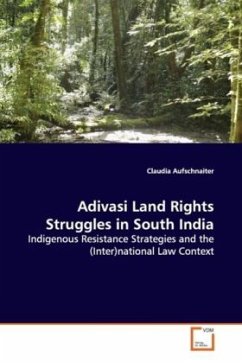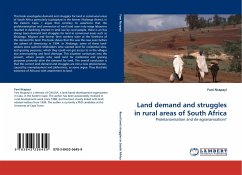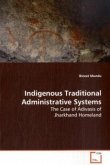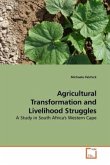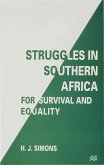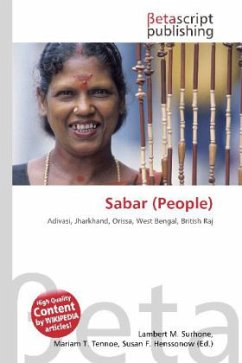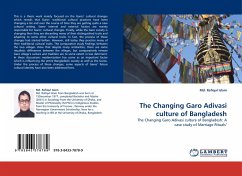The highly heterogeneous Adivasi represent India's de
facto (but not de jure) indigenous peoples. As ethnic
minorities Adivasis are not recognised as equal in
their socio-cultural distinctiveness and, as a
result, suffer widespread human rights violations and
are the target of misguided development schemes. The
most pressing issue is the loss of control over land
as, under the banner of national development, Adivasi
land is being opened up for resource extraction.
Adivasis are literally thrown out of the forest,
which is integral to their indigenous identity, while
for centuries they were pushed to the margins by
forces not dissimilar to those causing their
dispossession and forcible assimilation in the 21st
century. This book seeks to link anthropological with
international law concepts on indigenous peoples
land rights, leading to the research question: Why
are Adivasis being deprived of their land and can
they benefit from the fact that indigenous peoples
are being awarded more and more positive recognition
in international law? Taking two case studies from
South India it explores the relevance of human rights
law to Adivasi resistance strategies against land
alienation.
facto (but not de jure) indigenous peoples. As ethnic
minorities Adivasis are not recognised as equal in
their socio-cultural distinctiveness and, as a
result, suffer widespread human rights violations and
are the target of misguided development schemes. The
most pressing issue is the loss of control over land
as, under the banner of national development, Adivasi
land is being opened up for resource extraction.
Adivasis are literally thrown out of the forest,
which is integral to their indigenous identity, while
for centuries they were pushed to the margins by
forces not dissimilar to those causing their
dispossession and forcible assimilation in the 21st
century. This book seeks to link anthropological with
international law concepts on indigenous peoples
land rights, leading to the research question: Why
are Adivasis being deprived of their land and can
they benefit from the fact that indigenous peoples
are being awarded more and more positive recognition
in international law? Taking two case studies from
South India it explores the relevance of human rights
law to Adivasi resistance strategies against land
alienation.

